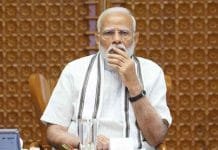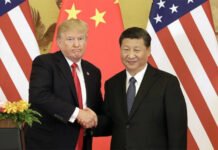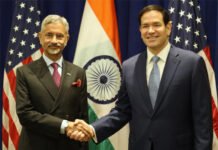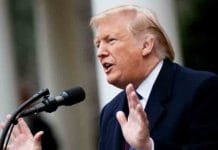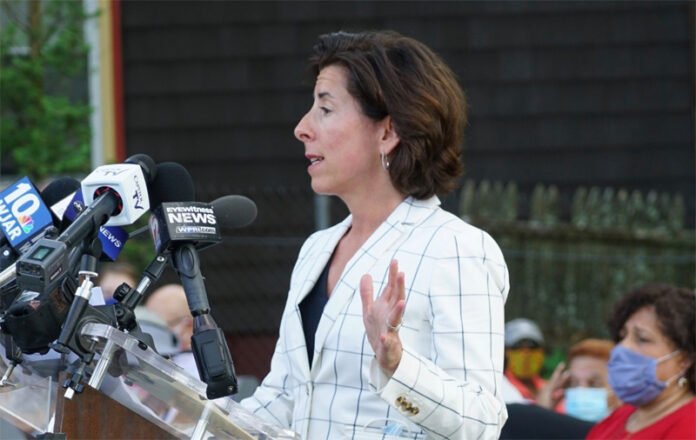
⚡ Highlights
Ex–US Commerce Secretary Gina Raimondo warns Trump trade policy is a “mistake.”
Tariff hikes on Indian goods spark renewed debate in Washington.
India urges dialogue and negotiation over retaliation.
Policy experts call for “reset” in U.S. approach toward New Delhi.
Strategic stakes rise as China’s influence grows in Indo-Pacific.
A Warning From Within Washington
In a blunt rebuke of current US trade policy, former US Commerce Secretary Gina Raimondo has cautioned that the United States is “making a big mistake with India” amid escalating tariff disputes and diplomatic friction.
Her statement, published on October 28, 2025, has sent ripples across policy circles in both Washington and New Delhi — reopening debate about the future of the India–US strategic partnership.
Speaking at a policy forum hosted by the Atlantic Council, Raimondo criticized the Trump administration’s new tariff hikes on Indian exports, warning that such moves could “undermine years of trust and shared economic goals.”
“India is not just another trading partner — it’s a strategic ally in every sense,” Raimondo said.
“Alienating India over tariffs would be a historic blunder.”
💬 Background: Trade Tensions on the Rise
Ties between India and the US have recently faced turbulence. The Trump administration’s 10% tariff increase on select Indian goods — part of its broader “America First” trade policy — has drawn widespread criticism.
India, in response, has hinted at exploring alternative markets in Europe, Southeast Asia, and Africa, while continuing high-level talks with Washington.
According to Politico, senior US officials have privately acknowledged that the tariffs have hurt small exporters in both countries, contradicting their original goal of “balancing trade deficits.”
🌏 India’s Response: Diplomacy Over Drama
India’s External Affairs Ministry has so far responded cautiously. Foreign Secretary Vinay Kwatra said,
“India continues to believe in dialogue and mutual respect. Trade and strategic partnership with the United States remain a cornerstone of our foreign policy.”
Meanwhile, Commerce Minister Piyush Goyal reaffirmed that India was “open to resolving tariff concerns through negotiation”, signaling that diplomatic engagement remains the preferred path.
Sources say India has sought tariff rollbacks on critical sectors like textiles, engineering goods, and IT services — industries that employ millions and are crucial to India’s export economy.
💼 Why Gina Raimondo’s Warning Matters
Raimondo’s remarks carry weight. As a key architect of US-India trade cooperation under the Biden administration, she played a central role in the US–India Strategic Trade Dialogue (2022–2023), which had strengthened cooperation in technology, semiconductors, and clean energy.
Her statement reflects growing unease in Washington that the new trade policy could alienate allies at a time when the US needs India’s partnership to counter China’s influence and maintain balance in the Indo-Pacific.
“If Washington wants to win the 21st century, it can’t afford to push India away,” she said.
“Every tariff increase makes that goal harder.”
⚖️ Global Reactions
The remarks have drawn attention in New Delhi’s diplomatic and business communities. Analysts believe Raimondo’s criticism may pressure US lawmakers to review tariff decisions, especially as trade deal negotiations enter their final stretch.
Dr. Rajesh Mehta, Senior Fellow at the Centre for Global Trade Studies, told ET Now,
“This is more than economics — it’s about strategic alignment. Raimondo is echoing what many in Washington quietly believe: that India is too important to alienate.”
📈 The Road Ahead: Reset or Rift?
Experts say the next few weeks will be critical. If Washington softens its stance, both nations could still salvage an ambitious India–US trade pact by early 2026. However, if tariffs persist, India may further diversify its trade dependencies, strengthening ties with ASEAN and EU markets.
The larger geopolitical picture suggests that Washington cannot afford to lose India, a key player in QUAD and an emerging economic powerhouse.
As Raimondo aptly concluded:
“Partnership with India is not a favor — it’s a strategic necessity.”

